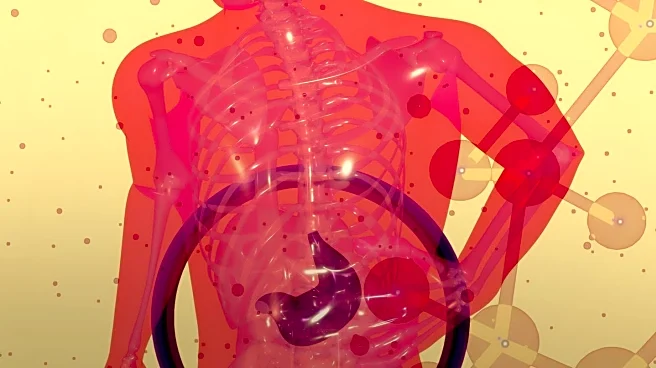What's Happening?
A recent study has focused on the dysregulated cholesterol and lipid metabolism in glioblastoma (GBM), a type of brain cancer. The research highlights that GBM cells do not rely on de novo cholesterol synthesis like other cells in the central nervous system. Instead, they depend on the uptake of extracellular cholesterol, which is facilitated by the upregulation of low-density lipoprotein receptors (LDLR) through the EGFR/PI3K/Akt pathway. This metabolic rewiring is linked to tumor growth, immune evasion, and resistance to therapies.
Why It's Important?
Understanding the unique cholesterol metabolism in GBM cells opens new avenues for targeted therapies. By focusing on the metabolic dependencies of GBM cells, researchers can develop treatments that disrupt these pathways, potentially inhibiting tumor growth and improving patient outcomes. This approach could lead to more effective therapies for GBM, a cancer known for its poor prognosis and limited treatment options.









